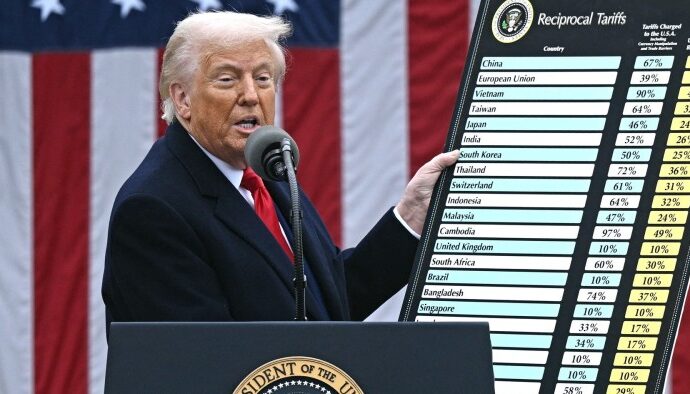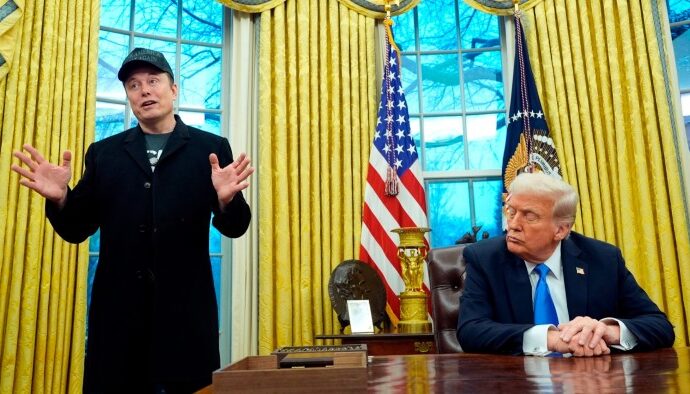
This article is an on-site version of our Moral Money newsletter. Premium subscribers can sign up here to get the newsletter delivered twice a week. Standard subscribers can upgrade to Premium here, or explore all FT newsletters.
Visit our Moral Money hub for all the latest ESG news, opinion and analysis from around the FT
Welcome back to Moral Money.
With just over two months to go until the COP30 climate summit in Brazil, things are not going smoothly. Delegates have been railing against the surging prices for scarce accommodation in the Amazonian host city of Belém. “This is not merely about hotel rooms,” Panamanian climate official Juan Carlos Monterrey Gómez wrote a few days ago. “This is about whether we take this international process seriously.”
But Brazilian officials insist that the summit can yield serious progress on global climate action — and prove the resilience of multilateral co-operation at a time when it’s under extraordinary strain.
Can they pull it off? I spent the past two weeks in São Paulo and Brasília, digging into the two key initiatives that the hosts are hoping to drive forward at COP30. In Friday’s newsletter, we’ll explore the ambitious Brazilian plan for a $125bn global fund for forest conservation.
First, we look today at Brazil’s other priority agenda item for COP30: the push for international co-ordination on carbon pricing schemes. The plan faces some serious obstacles, as I highlight below. But it also reflects the growing global momentum around carbon pricing — with big implications for global trade and industry and, just maybe, the climate.
Brazil’s big push on global carbon pricing
Even if the Brazilian hosts hadn’t made carbon pricing a priority for COP30, it was certain to be a red-hot topic thanks to Brussels.
From the start of next year, the EU will start applying its carbon border adjustment mechanism (CBAM), which has attracted strong criticism from developing countries.
The EU has long required its companies in several high-emitting sectors to buy carbon permits under its emissions trading scheme (ETS). Now, as permit prices rise and free allowances are phased out, it wants to avoid putting its own industry at a competitive disadvantage. So under the CBAM, it will charge an equivalent carbon price on imports.
Crucially, the CBAM charge on imports will be adjusted to deduct any carbon price already paid in the home country. That provides an incentive for other countries to introduce their own carbon pricing systems. Why not take the carbon revenue yourself rather than let European countries collect it at the border?
The CBAM’s looming arrival has catalysed a flurry of activity around carbon pricing. Brazil passed a law late last year to introduce its own ETS, which will come into full force by 2030. China has been moving to strengthen its existing ETS, including through an announcement last week that imposed emission caps for companies in several sectors. Other nations, from Thailand to the United Arab Emirates, have also been moving to introduce ETS schemes.
“I’m not sure the Europeans quite realise just how powerful the CBAM was as an incentive for other countries to adopt carbon pricing,” said Catherine Wolfram, an economist at the Massachusetts Institute of Technology and former US Treasury official. “It’s really started a global conversation.”
Much of that conversation has been fraught. Many countries, including Brazil, China and India, have complained that the CBAM will unfairly penalise developing nations that are at an earlier stage of their energy transition.
Brazil now wants to use the COP30 presidency to push for a different international carbon pricing framework — one based on multilateral agreement, rather than with the EU as the de facto sole standard-setter.
“To create a fully global carbon market would rely on the approval of 200 countries within the COP process, which is not politically viable,” said Rafael Dubeux, a Brazilian finance ministry official playing a lead role on the scheme.
Instead, Brazil is hoping to persuade the EU and China to join it in a new “coalition”, with agreement on a basic set of rules to guide the interplay between the world’s carbon pricing systems. With those two giant economies on board, Dubeux told me, Brazil expects a “magnetic” effect to draw in others.
The Brazilian proposal draws heavily on the work of a group of economists, led by MIT’s Wolfram, which published an initial report in June ahead of a fuller set of recommendations later this month.
The proposed global framework would allow more flexibility around emission reductions in developing countries, which would be reflected in the calculation of carbon border fees charged on their exports, Dubeux said. Those border fees would be waived altogether for the least developed countries. Revenues from the border fees would be used at least in part for climate finance in lower-income nations, he added.
Both the EU and China have proved receptive to the idea, though neither has given any commitments around it, Dubeux said. The EU in particular has some clear grounds for concern. Any relaxation of the CBAM would risk putting domestic industries at a disadvantage to higher-polluting foreign competitors. The idea of giving away part of the CBAM revenues has already been considered, and dismissed, during the design of the EU scheme.
Hæge Fjellheim, head of carbon advisory at research firm Veyt, argues that efforts around globally co-ordinated carbon pricing have been attempted since the 1997 Kyoto protocol, with limited success. Far more likely, she suggests, is a more haphazard “bottom-up” process, with multiple jurisdictions developing their own respective carbon pricing systems, with the prices gradually converging over time.
But as the EU faces criticism from developing countries over the effects on them of CBAM and other environmental regulations — while struggling to make progress towards its pledges of international climate finance — engaging with the Brazilian proposal might look like smart geopolitics.
The initiative reflects a more assertive approach from larger developing economies around international climate action, said Dirk Forrister, president of the International Emissions Trading Association, a business group. “Are they going to be rule-makers or rule-takers? I think we’re starting to hear much more about them wanting to be rule-makers,”
For China, this could present another opportunity to present itself as a leader on climate issues — in contrast with Donald Trump’s US government, which has withdrawn from the Paris agreement for a second time. Given China’s dominant position in many parts of the clean energy economy, it also has an interest in supporting initiatives that will accelerate the global transition, Dubeux argues.
One obvious risk to this initiative is potential opposition from the Trump administration, which has already leaned on the EU to weaken the CBAM, and is pursuing a broader economic pressure campaign against Brazil.
But the proposal itself is also a reflection of how the landscape of international climate co-operation is shifting in response to the disengagement of the world’s most powerful economy. At previous COP summits, heavy emphasis was put on the need to corral all nations into a unanimous consensus. By contrast, the focus at COP30 will be on whether smaller groups of more ambitious nations can make a difference.
“The US withdrawal has put in very stark relief that we’ve got to find ways to move forward that don’t involve that kind of unanimity,” Wolfram said. “I do think that there’s something to be said for getting a small group of finance ministries together and making progress without 190-odd voices in that conversation.”
Smart reads
Dangerous talk Big tech companies face concerns that their AI chatbots are engaging with young people in conversations about suicide and self-harm. What are they doing about it?
No apologies War in Ukraine has prompted Norway to “return to a more unapologetic stance of pumping oil and gas”, writes Richard Milne.
Brain power BMW is betting on high-tech “superbrains” as it tries to catch up with rivals in the electric vehicle market.


